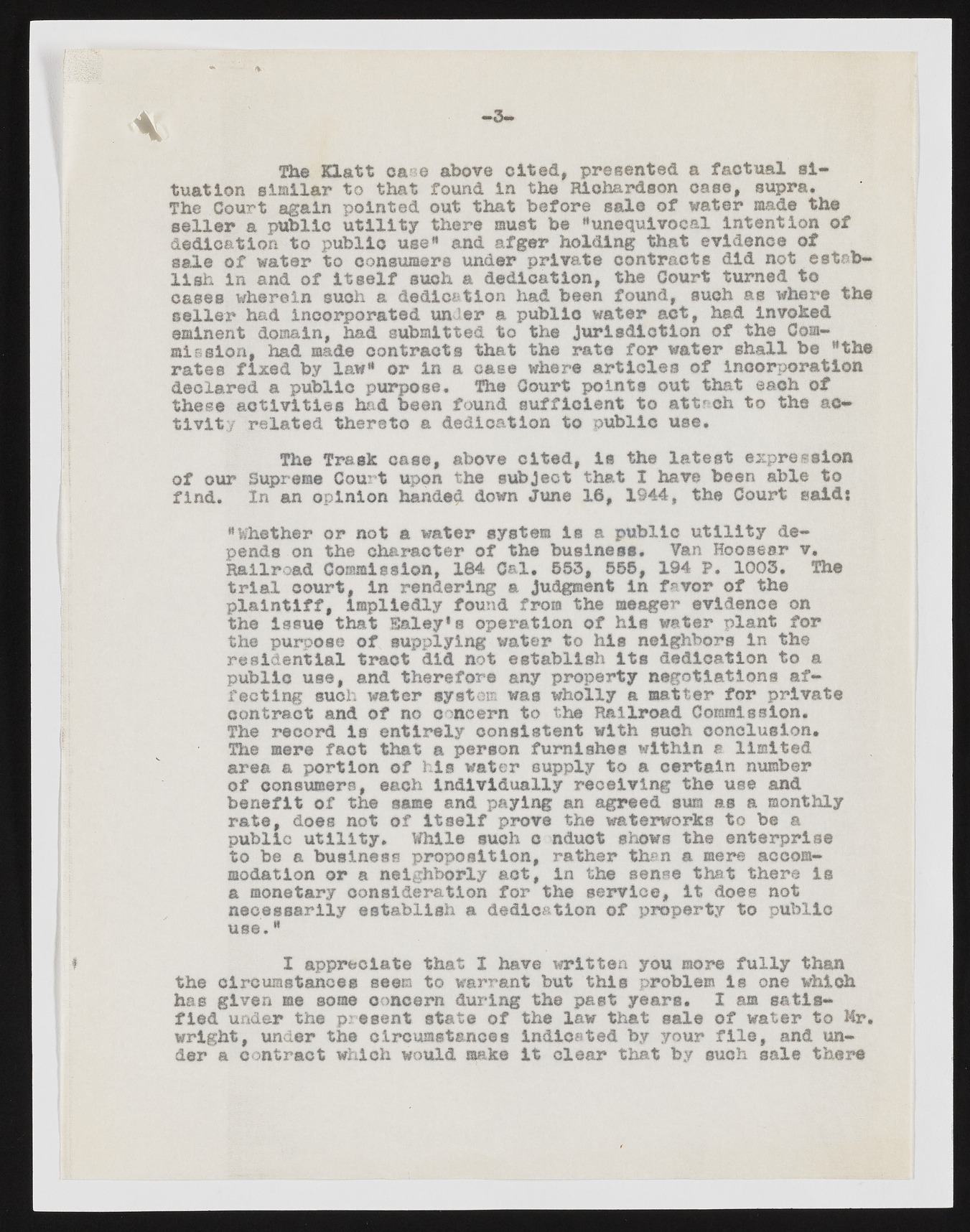Copyright & Fair-use Agreement
UNLV Special Collections provides copies of materials to facilitate private study, scholarship, or research. Material not in the public domain may be used according to fair use of copyrighted materials as defined by copyright law. Please cite us.
Please note that UNLV may not own the copyright to these materials and cannot provide permission to publish or distribute materials when UNLV is not the copyright holder. The user is solely responsible for determining the copyright status of materials and obtaining permission to use material from the copyright holder and for determining whether any permissions relating to any other rights are necessary for the intended use, and for obtaining all required permissions beyond that allowed by fair use.
Read more about our reproduction and use policy.
I agree.Information
Digital ID
Permalink
Details
Member of
More Info
Rights
Digital Provenance
Publisher
Transcription
4k ] g The Xlatt oase above cited, presented a factual situation similar to that found in the Richardson case, supra. The Court again pointed out that before sale of water made the seller a public utility there must be "unequivocal intention of dedication to public use* and afger holding that evidence of sale of water to consumers under private contracts did not establish in and of itself such a dedication, the Court turned to cases wherein suoh a dedication had been found, such as where the seller had incorporated under a public water act, had invoted eminent domain, had submitted to the Jurisdiction of the Commission, had made contracts that the rate for water shall be *the rates fixed by law* or in a case where articles of incorporation declared a public purpose. The Court points out that each of these activities had been found sufficient to attach to the activity related thereto a dedication to public use* The Trash case, above cited, is the latest expression of our Supreme Court upon the subject that I have been able to find. In an opinion handed down June 16, 1944, the Court said* *Whether or not a water system is a public utility depends on the character of the business. Van Hoosesr v. Railroad Commission, 164 Cal, 653, 556, 194 P. 1003. The trial court, in rendering a Judgment in favor of the plaintiff, impliedly found from the meager evidence on the issue that Haley's operation of his water plant for the purpose of supplying water to his neighbors in the residential tract did not establish its dedication to a public use, and therefore any property negotiations affecting suoh water system was wholly a matter for private contract and of no concern to the Railroad Commission. The record is entirely consistent with suoh conclusion. The mere fact that a person furnishes within a limited area a portion of his water supply to a certain number of consumers, each individually receiving the use and benefit of the same and paying an agreed sun as a monthly rate, does not of Itself prove the waterworks to be a public utility. While such o nduot shows the enterprise to be a business proposition, rather than a mere accommodation or a neighborly act, in the sense that there is a monetary consideration for the service, it does not necessarily establish a dedication of property to public use. | f I appreciate that I have written you more fully than the circumstances seem to warrant but this problem is one which has given me some concern during the past years. I am satisfied under the present state of the law that sale of water to Hr. wright, under the circumstances indicated by your file, and under a contract which would make it clear that by such sale there If

